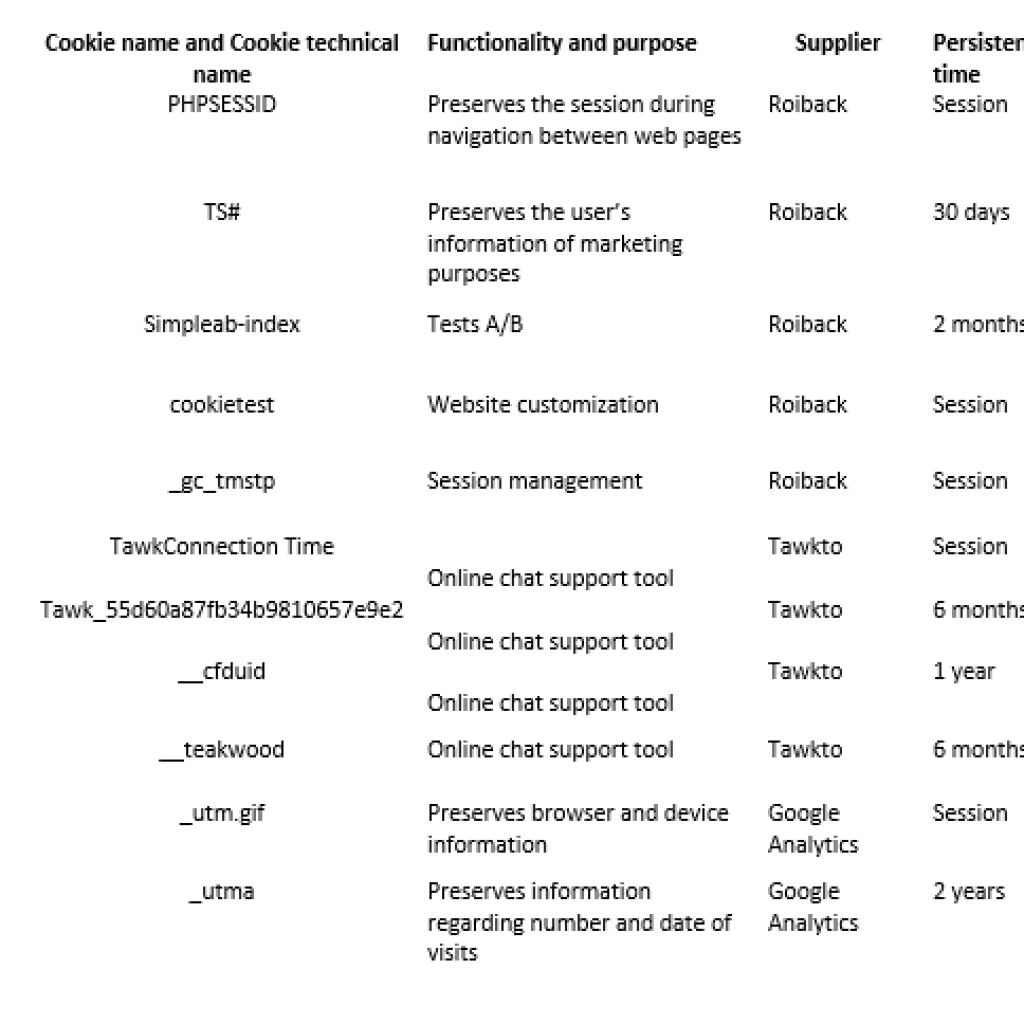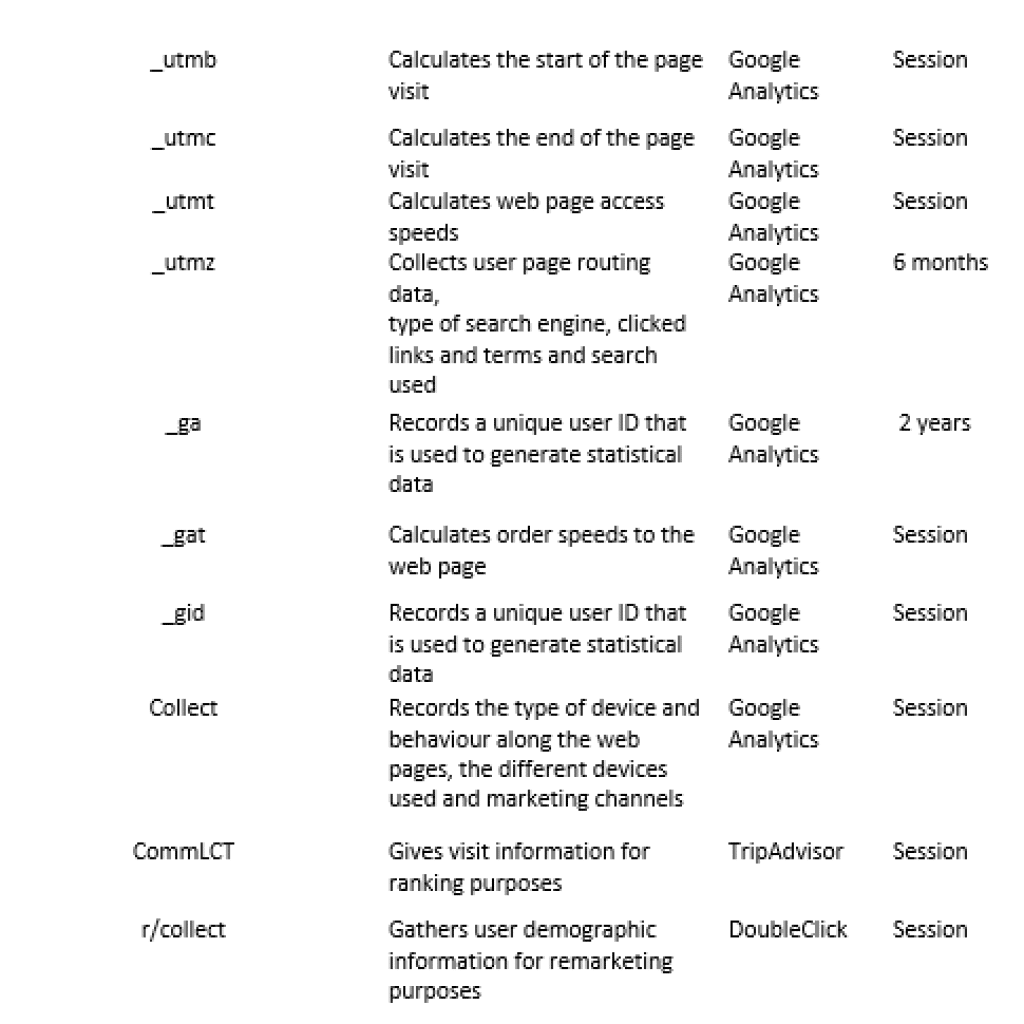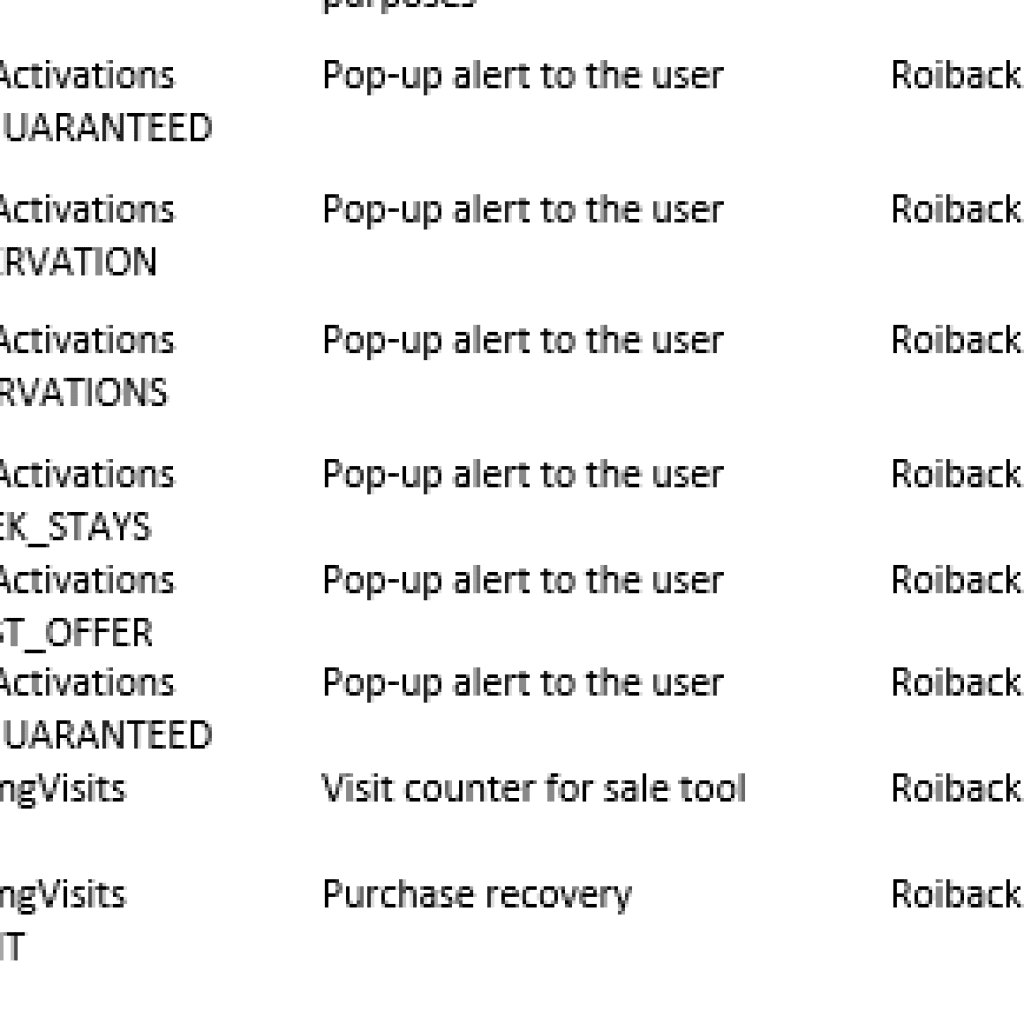Cookie Policy
In accordance with Regulation (EU) no. 2016/679 from the European Parliament and the Council of 27th April 2016 (General Data Protection Regulation, from now on GDPR), the society holder of the Neya Lisboa Hotel and NEYA Porto Hotel.
- AZAD, Sociedade de Investimentos Turísticos e Hoteleiros, Unipessoal, Lda, contribuinte fiscal n.º 508774942, com sede na Rua D. Estefânia, 71-77, 1150-132 Lisboa, na qualidade de entidade detentora e exploradora do NEYA Lisboa Hotel localizado na Rua D. Estefânia 71-77, 1150- 132 Lisboa.
- NEYA – Empreendimentos Hoteleiros e Turísticos, Unipessoal, Lda, contribuinte fiscal n.º 508561779, com sede na Praça de Londres, n.º 3, 4.º Esq, 1000 – 191 Lisboa, na qualidade de entidade detentora e exploradora do NEYA Porto Hotel localizado na Rua de Monchique, n.º 35-41, 4050 – 394 Porto.
NEYA Hotels would like to present you with the following information:
Definition of cookie
A cookie is a small amount of data generated by a website and saved by your web browser. Its purpose is to remember information about you, similar to a preference file created by a software application.
Thanks to cookies, the online portal remembers the user’s actions and preferences (such as login data, chosen language, font size and other display settings, etc.) in order to be shown again when the user returns to visit that online portal or navigate from one page to another. Cookies are thus used to perform computer authentication, session monitorization and storage of information about the activities of users who access a specific online portal and may also contain a unique identification code that allows the user’s navigation to be monitored within the online portal itself for statistical or advertising purposes.
While browsing an online portal, the user may also receive cookies from online portals or web servers on his computer or mobile device other than those he is visiting (so-called ‘third party cookies’). Some operations cannot be performed without the use of cookies, which in some cases are technically necessary for the online portal to function properly.
General types of Cookies:
There are several types of cookies, depending on their characteristics and functions, and these can remain on the user’s computer or mobile device for different periods of time:
Session cookies – are automatically deleted when the browser is closed;
Persistent cookies – remain on the user’s equipment until a predetermined period.
According to the existing legislation in Portugal, for the use of cookies, express consent by the user is not always necessary.
Specially in what concerns ‘technical cookies’ these do not require such consent, that is, those used for the sole purpose of transmitting a communication through an electronic communications network, or to the extent strictly necessary to provide a service expressly requested by the user. In other words, these cookies are essential for the online portal to function or are necessary to carry out activities requested by the user, namely: ‘cookies analytics’ when used directly by the manager of the online portal to collect information, in assemble, about the number of users and how they visit the website, navigation or session cookies (to authenticate themselves), functionality cookies that allow the user to browse according to a series of selected criteria (for example , the language, the products selected for purchase) in order to improve the service provided to them.
For ‘profiling cookies’, that is, those designed to create profiles relating to the user and used to send advertising messages in line with the preferences expressed by the same in the context of internet browsing, a prior consent of the user is required. The online portal uses the following cookies that can be deselected, with the exception of third-party cookies for which the user must refer directly to the respective categories of marking and deselecting the respective cookies, indicated through links:
Technical Cookie Types
Below you can find a description of the most common technical cookies used by web platforms:
Navigation or session cookie – strictly necessary for the functioning of the online portal or to allow the user to use the content and services requested by him.
Cookies analytics – allow you to understand how the online portal is used by users. With these cookies, information about the user’s identity is not collected, nor any personal data since the information is treated in an aggregated and anonymous way.
Functionality cookies – used to activate specific features of the online portal and a series of selected criteria (for example, the language, the products selected for purchase) in order to improve the service provided.
Profile creation cookies – used to send advertising messages in line with the preferences expressed by the user in the context of internet browsing.
Third-party cookies – referring to online portals or web servers other than those of the NEYA Hotels, used for the purposes of these third parties, also including profiling cookies. It is necessary that these third parties, listed below with the respective links to the privacy policies, are independent owners of the treatment of the data collected through the cookies served by them; therefore, the user must consult their personal data processing policies, information and consent forms (marking and unmarking the respective cookies).
In addition, it should also be noted that the NEYA Hotels does what is reasonably required to monitor cookies on its online portal. These are regularly updated on the landing page at the link indicated below, where we provide transparency on cookies sent directly by the COMPANY and on their purpose, as well as the specific reference to cookies sent by third parties through our online portal.
As already established, the NEYA Hotels assigns the responsibility to third party cookie providers to provide the privacy statement and collect users’ consent. This responsibility refers not only to the cookies that the third parties send directly, but also to any additional cookies that are sent through our online portal due to the use of services from which the third parties themselves benefit. Regarding these cookies, sent by service providers of these third parties, NEYA Hotels cannot exercise any control and does not know either their characteristics or their purposes.
The following are links to information about third-party cookies:
– Roiback
– Doubleclick
– Tawkto
– Tripadvisor
Specific cookies used on the platform
The following table specifies the cookies sent by the COMPANY through its website:



Cookie-related settings
The user can make a choice regarding the reception of profiling cookies. Failure to authorize the indicated cookies (profile creation) will not affect the functioning of the online portal. The user can block or delete (in whole or in part) technical or functionality cookies through specific functions of his browser.
However, the user is informed that the non-authorization of technical cookies may prevent the use of the online portal, the viewing of its contents and the use of the respective services. Inhibiting functionality cookies may imply that some services or certain functions of the online portal are not available or do not work correctly and the user may be required to change or manually enter some information or preferences each time he visits the online portal.
The choices made by the user regarding the cookies on the online portal will, be recorded in a specific cookie. This cookie, however, may in some circumstances not work correctly: in such cases, it’s recommended that the user eliminates unappreciated cookies and inhibits the use through the functionality of the browser.
The user’s preferences regarding cookies will be reset if different devices or browsers are used to access the online portal.
How to view and modify cookies using the browser
The user can select which cookies he wishes to authorize through the proper procedure provided on the page referred to in the link above regarding detailed information on cookies sent by the NEYA Hotels, as well as allowing, blocking or excluding (in whole or in part) cookies through specific functions of your browser.
For more information on setting and specifying preferences for cookies, follow the specific instructions for the following browsers:
– Internet Explorer
– Firefox
– Chrome
– Safari
Policy translated on March 18, 2020
Policy updated on December 21, 2020















